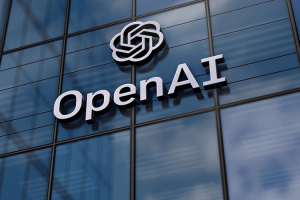The CommonWell Health Alliance is continuing to make its mark as a leader towards EHR interoperability with two significant announcements: the appointment of its first Executive Director, Jitin Asnaani, and the expansion of its membership rolls to include additional EHR and clinical systems vendors.
Despite an ongoing tiff with Epic Systems over membership costs, privacy, and even the basic necessity of bringing the vendor community together under one roof to solve pressing EHR interoperability concerns, CommonWell has positioned itself as one of the most notable non-governmental efforts to improve health information exchange and care coordination for patients.
Yesterday, CommonWell announced the addition of five new members, including Kareo, MEDITECH, Merge, PointClickCare, and Surgical Information Systems (SIS). They join industry mainstays such as athenahealth, Cerner, McKesson, CPIS, Allscripts, and Greenway.
The collaboration and its new members have found an experienced leader in Asnaani, who has completed stints in private industry at athenahealth and public service at the Office of the National Coordinator, working on the Standards and Interoperability Framework.
“Our number one priority is to enable real-world information exchange and the challenge for us is to continue scaling our services across the country,” Asnaani said to HealthITInteroperability.com in an interview. “Scaling means two things. One is ensuring more and more members, more and more health IT developers, are part of the network and able to build our service into the software. Two is that we’re actually deploying that software out to real providers so that we can do real information exchange.”
CommonWell’s vision for EHR interoperability first found its way into the real world in November of 2014 when Cerner Corporation announced free access to CommonWell services for its clients through 2017, though “free” still meant paying fees for initial technical set up. “The design is for the member health IT company to pass through the cost to the end-user provider organizations,” Cerner said at the time, but the Alliance’s cost structure and membership demands recently inflamed the simmering distaste between the Alliance and Epic Systems.
Right off the bat in 2013, Epic’s CEO Judy Faulkner slammed the newly-formed collaboration as a “competitive weapon” in the battle for EHR market share, stating that her company was not aware of the group’s formation and was not invited to join it. Executive VP Carl Dvorak added that the collaboration was “yet another distraction” in the pursuit of standards-based EHR Interoperability, and the company has stuck to its largely negative view of the group ever since.
Peter DeVault, Director of Interoperability at Epic, told a Senate committee in March that the Alliance was too expensive to join, required a non-disclosure agreement that raised Epic’s hackles, and wasn’t even mature enough to be effective. During the same hearing, DeVault revealed that Epic charges $2.35 per patient per year to exchange records with EHR systems outside of its own brand, which makes a $40.6 million argument for keeping EHR interoperability on Epic’s own terms.
But a growing proportion of the industry doesn’t seem to be following Epic as it takes its ball and goes home. While Epic has put forward its own interoperability network, Carequality, that it hopes will be an industry-wide way to connect networks to each other, CommonWell has a slightly different take on the way EHR interoperability will develop in the short term.
“There will always be other parties who are engaged in information exchange for other purposes and over time there will be more and more need to figure out how the different parties are able to exchange information together,” Asnaani said in response. “That’s the problem that Carequality is trying to solve. It’s future-looking, and is not in the case of trying to build something. It is trying to think about how the people who have built something can connect together, and we’re supportive of that idea. In the meantime, we’re just trying to build and make information exchange a reality today.”
And CommonWell is making meaningful progress, despite the assertions of its detractors. It has secured a long list of major players in the EHR market who are now investing in the development of standards that are widely agreed to be the best possible options for EHR interoperability in the current technology landscape, Asnaani confirmed.
“The standards we are using to date in production are things that are from HL7 and incorporated into Stage 2 Meaningful Use, such as the C-CDA, which we used as a starting point,” he said. “Not surprisingly, we are big champions of FHIR as well and have actually been using it for the last year and a half for patient demographic data exchange. I expect us to broaden that usage to all the elements of the clinical chart over time.”
The ongoing battle for control over the quest for EHR interoperability isn’t necessarily a bad thing for consumers, however. Healthcare organizations are banking on the fact systems vendors must compete for the ability to offer the most usable, interoperable, value-laden products possible. Whether Epic caves to public pressure or CommonWell bends to the sheer size and impact of Faulkner’s empire, healthcare providers may be the ultimate winners as innovation accelerates and interoperability becomes a focal point of future software development.






































